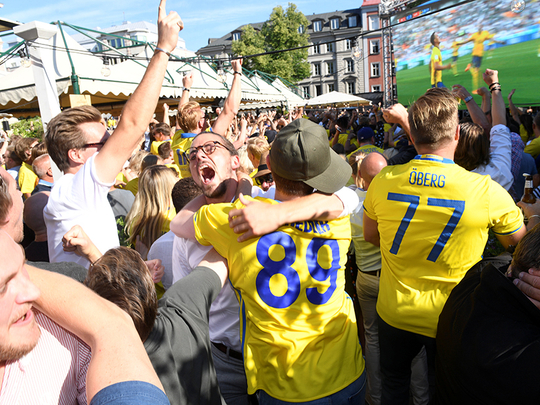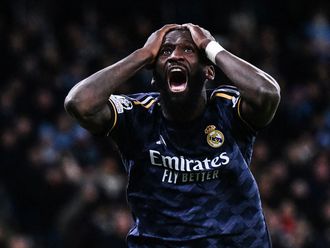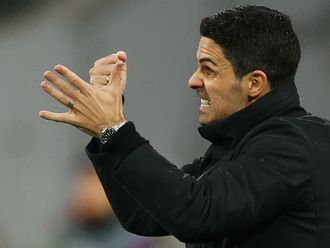
Gelendzhik: There will be mixed emotions for many Swedes when their team clash with England in their World Cup quarter-final; for almost 50 years, they have had a love affair with the English game that has brightened up their long, dark winter evenings.
And they have an outbreak of an agricultural disease and a cancelled fox hunt to thank for it.
In 1967 reporter Lars-Gunnar Bjorklund from state broadcaster SVT was in England to do a story about fox hunting, but an outbreak of foot-and-mouth disease saw all hunting cancelled, so he went to watch Tottenham Hotspur play Chelsea instead.
Due to the harsh winters, Sweden’s football league is usually played from April to October. Bjorklund quickly realised that English football would be the perfect entertainment for long winter evenings, and the ‘Tipsextra’ show was born.
The first game, a 1-0 victory for Wolverhampton Wanderers over Sunderland, was shown on November 29, 1969 and viewers in Sweden quickly took teams like Wolves, West Bromwich Albion and Leeds United to their hearts.
“That was the only football you could see, so that’s why it became so strong,” sports columnist Johan Esk of the Dagens Nyheter newspaper said.
Though gambling was tightly regulated in 1969, hundreds of thousands of Swedes filled in a pools coupon called ‘Stryktipset’ every week where they tried to predict the correct result — home win, draw or away win — in 13 matches.
Viewers were transfixed by one live match every Saturday and goal flashes from around England’s top division.
“Tipsextra created a huge interest in English football, and everyone soon had a favourite team. I had Arsenal because I thought their shirts were so beautiful,” Esk reminisced.
At a time when there were only two channels to choose from in Sweden, there was little competition.
“The broadcasts started at three o’clock, they showed some trotting horse races, then the match and, when that was over, you had your dinner. That was it, every Saturday,” says Esk, who will be covering Sweden’s quarter-final against England from the press box.
“Following that on the TV there was a programme called ‘Weekend Prayer’ where the weekend was marked in the Swedish Church — but the real religion was Tipsextra, and English football.”
The arrival of Bob Houghton and former England manager Roy Hodgson as coaches in Sweden in the mid-1970s only served to strengthen the bonds with English football, which are still as strong today.
With the global popularity of the English Premier League, fans with cable television and a broadband connection can see virtually any game they want, so it is unlikely that any country will ever fall in love again the way the Swedes did with English football.
“Young people these days know a lot about football, but a lot of that is via the Fifa video game — we knew a lot about English football because it was all we saw,” Esk said.
So while many will have fond memories of growing up watching their chosen heroes across the water in England, most would surely settle for a Swede success on Saturday night.












